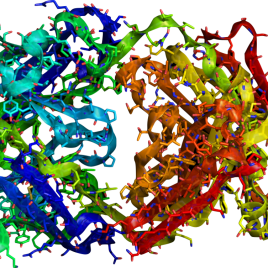Biopharmaceuticals, or Biologics have successfully improved the care of several hard to treat conditions, such as rheumatoid arthritis, Crohn’s disease and cancer. More of these complex biological drugs are coming. In the US over 900 biologics are being developed for more than 100 diseases. While they can be effective treatments, they can be very expensive and are the […]
Tag: cancer
Genetic variants for breast cancer can help in better screening and treatments, earlier detection 
Scientists have identified 72 new genetic variants associated with the risk of breast cancer. In two recently published studies, researchers describe the new variants – including some that are associated with two biologically distinct types of breast cancer cases that don’t respond to hormonal therapy. These results come from a global project which involved over […]
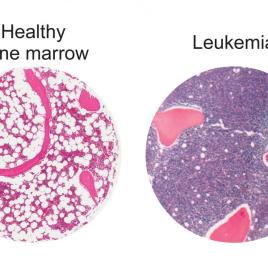
Fattening up fat cells can help fight leukemia 
Boosting fat cells in the bone marrow helped suppress cancer cells while regenerating healthy blood cells, new research suggests. According to study authors, the present research is unique in its focus on the bone marrow as an ecosystem, which led to the identification of fat cells as a possible therapy target – instead of the […]
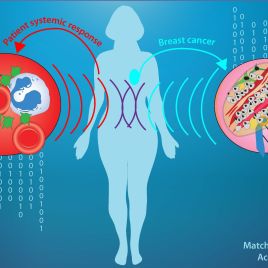
New software tool links breast cancer, immune system processes 
Researchers have developed a new software tool that examines various gene expressions in different body tissues. Using this tool, they found an association between breast cancer tumor cells and immune system cells in the bloodstream. In particular, researchers found that molecular processes vary with subtypes: for example, immune system-suppressing processes operating in conjunction with certain […]
Attacking cancer cells by cutting off their sugar supply 
Cancer cells, unlike healthy ones, use a fermentation process to break down sugar to create energy. This metabolic process is much less efficient and uses a lot more sugar than the oxygen conversion of healthy cells, and it’s known to cancer researchers as the Warburg effect. A recent study describes the mechanism behind this effect, and […]
Consistent exercise routine helps female patients prevent breast cancer recurrence 
Women who have survived a bout of breast cancer can significantly reduce chances of recurrence by getting consistent exercise and keeping a steady weight. Researchers have reviewed 67 articles to study the effect of certain lifestyle changes on the survival rate and possibility of breast cancer relapse. Their findings indicate that weight gain of over […]
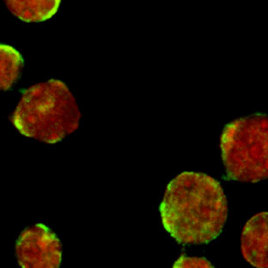
Growing rare stem cells in a lab to treat blood diseases 
Stem cells from umbilical cord blood can be used to help treat adult blood cancers, but few individual cord blood samples contain enough of the cells for a transplant. Now new research provides strategies for controlling and enhancing the growth of these stem cells, which means that more donated samples can be used for transplants, […]
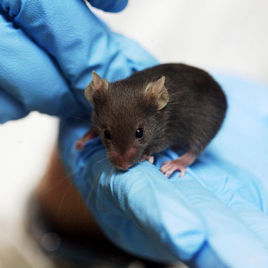
Warmer labs for mice make for more accurate cancer research results
New research shows that keeping laboratory mice warmer could mean more realistic results in cancer research studies. Lab temperatures are often 4-10 degrees colder that the toasty 30 degrees Celsius preferred by mice. Authors of a new study out of Roswell Park Cancer Institute in Buffalo, New York, suggest the mice use more energy to […]
Palliative care viewed as a stigma, despite improving quality of life 
Canadians with cancer and their caregivers, associate “palliative care” with impending death, and consequently are not taking advantage of the benefits early palliative care can bring to a patients’ quality of life, according to the authors of a new study. Originally, in the 1960s, palliative care referred to end-of-life care, mainly for cancer patients. The […]
Screening for lung cancer – New Canadian guidelines
New lung cancer screening guidelines have been released by the Canadian Task Force on Preventive Health Care. The guidelines take into account the latest evidence and aim to balance the benefits of early detection against the harms caused by overdiagnosis and invasive testing. The new guidelines recommend annual CT scans for adults aged 55-74 years […]
Biologics and Biosimilars | SMCC Webinar
Biologics and Biosimilars | SMCC Webinar | January 7, 2016 | Video available Biopharmaceuticals, or Biologics have successfully improved the care of several hard to treat conditions, such as rheumatoid arthritis, Crohn’s disease and cancer. More of these complex biological drugs are coming. In the US over 900 biologics are being developed for more than 100 diseases. While they […]
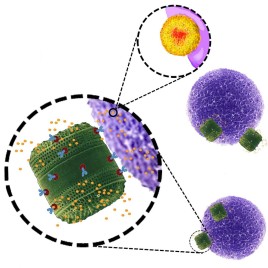
Fighting cancer with algae
A microscopic algae, called diatoms, have been genetically altered to target and deliver drugs to cancerous cells without harming healthy tissue. Researchers used a two-step strategy to attach antibodies as well as drug molecules to the algae, creating a targeted delivery system. The authors of the paper say the efficacy of the system, as well […]
Brain cancer cells form connected network
Microtubes connecting brain tumor cells allow a specific type of brain cancer, known as gliomas, to spread quickly and become resistant to radiation therapy, a new study shows. This knowledge will allow researchers to target for future treatment efforts. These microtubes allow cancerous cells to reach out and form connections, allowing them to grow as […]
The Angelina Jolie effect
Media coverage of Angelina Jolie’s double mastectomy lead to an increased awareness of options for reconstructive breast surgery. Researchers compared responses to two surveys asking women questions on breast cancer and surgery, one conducted pre-Jolie’s announcement in March 2013, the other post-announcement in June 2013. Original research paper published in CANCER on September 28, 2015. Names and affiliations […]
Small cell lung cancer occurs when two genes are switched off
Using whole-genome sequencing researchers found that small cell lung cancer (SCLC) occurs when both copies of two separate genes responsible for tumor suppression are switched off. The research team hopes this discovery will help the development of new treatments for SCLC, which usually results in patient-death within months. Researchers sequenced the genome of 110 tumor […]
CT scanning for cancer redundant in blood clot patients
Computerized tomography scans, or CT scans, do not improve cancer detection rates, or shorten the time to diagnosis, in patients with unexplained blood clots in the lungs or legs. Previous studies suggest that up to 10 per cent of patients suffering from venous thromboembolism, blood clots in the lungs or legs, will be diagnosed with […]
